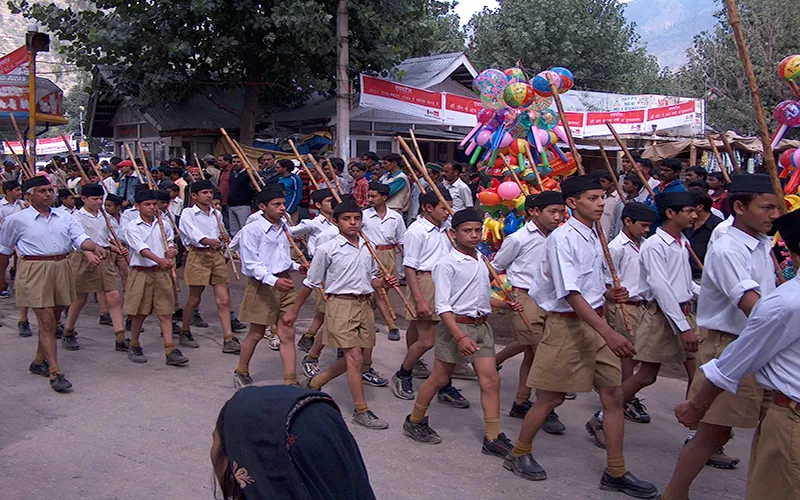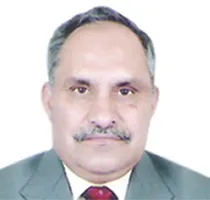-
CENTRES
Progammes & Centres
Location
Whatever be the truth about Tipu Sultan, the one fact on which there can be little debate is that he fought against British occupation till the very end. If we are to look at our history through the lens of religious bigotry, the first war of independence in 1857, for example, would be of little significance.

Recently, Sangh parivar ideologues have spawned a violent confrontation with the Karnataka Government over the latter's decision to celebrate Tipu Sultan's birth anniversary annually. According to senior RSS leader V Nagaraj, this opposition is on the grounds that Tipu Sultan was the "most intolerant king in history", and this accusation is supported by "his own statements, and what was written on his sword. On his sword it was clearly mentioned it was meant to kill the kafirs." Others disagree and point that actions such as evicting the forces of Maratha General Parushram Bhave after they vandalised the temple town of Shringeri and forced the Jagadguru Shankaracharya to flee his mutt in 1791, and granting sanads or deeds of endowment to temples, show the secular nature of his rule. Either way, it makes little sense to politicise an innovative attempt to enhance tourist revenues from Tipu's fort at Seringapatnam, on the outskirts of Mysore.
Whatever be the truth about Tipu Sultan, the one fact on which there can be little debate, is that he fought against British occupation till the very end. If we are to look at our history through the lens of religious bigotry, the first war of independence in 1857, for example, would be of little significance. Depending on how the facts are interpreted, it can be said that the 1857 war was an attempt, mainly by Muslim noblemen and soldiers, to throw off the British yoke and hand over the country back to the Mughals. Yet, such a proposition is foolish because Hindu noblemen,citizenry and soldiers also played a critical part in this rebellion. The proposition would also be an insult to the memory of the 10 million Hindus and Muslims who were killed, maimed or displaced as retribution over the subsequent decade as historian Amresh Misra has suggested in The War of Civilizations: India AD 1857, The Road to Delhi and the Long Revolution.
Notably, the 1857 uprising was not the first attempt at armed opposition to British rule. It was pre-dated by 51 years by the still little known Vellore Mutiny of 1806. In this uprising 'native troops', both Hindu and Muslim, from the Garrison, the 1st Battalion of the 1st Madras Native Infantry, elements of the 2nd Battalion of the same Regiment and elements of 1st Battalion 23rd MNI rebelled and killed over 200 of the British soldiers holding the fort at Vellore. In this fort, the British held the family of the deposed ruler of Mysore, Tipu Sultan. After the fort had been captured, the rebels immediately raised the Sultanate flag. However, they couldn't convince any of Tipu's sons to lead the uprising. This allowed the British to quickly suppress the movement and prevent it from spreading through the whole of the Madras Army.
The mutineers were also contested by the surviving soldiers of His Majesty's 69th Foot, a British Regiment, reinforced just in time by the cavalry and artillery column located at Arcot, approximately 16 miles from Vellore. Once the tide of the battle had turned, over 800 rebels were either killed in the fighting or slaughtered subsequently. The 1/1 Madras Native Infantry and the other units involved were disbanded. It resulted in a complete overhaul of the Madras Presidency Army and civil administration, and the transfer of Tipu Sultan's family to Calcutta.
The causes for the uprising were said to be British attempts to interfere in the religious and social traditions of the native soldiers and an attempt to change the uniform, specifically the introduction of a new turban. There were also suspicions of a larger conspiracy at the time. This was subsequently revealed by an officer, John Blakiston, in his book Twelve Years' Military Adventure in Three Quarters of the Globe, Volume 1. Blakiston writes that, "the mutiny, which I believe, was only the root of a deep laid plot having ramifications more extensive than it was deemed prudent to acknowledge, was planned to have broken out some days later than it actually did, in which case it would, in all probability have been accompanied by simultaneous movements in other stations of the army. But the apprehensions of discovery from a circumstance I shall hereafter mention joined to the favourable opportunity which presented itself urged its premature explosion...."
That the British spared no efforts to destroy Hindu-Muslim unity till they partially succeeded in partitioning the sub-continent is well- known, as is also the fact that Indians of all faiths participated in the rebellions of the 19th Century. They were motivated by the icons of their times like Tipu Sultan, and it was their sacrifice that ultimately resulted in freedom from British oppression, a century later. It's ironical that people who wear nationalism on their sleeves are now attempting to deface history, and complete what the British then failed to achieve.
(The writer is a military veteran and a consultant with Observer Research Foundation)
Courtesy: The Pioneer, November 16, 2015
The views expressed above belong to the author(s). ORF research and analyses now available on Telegram! Click here to access our curated content — blogs, longforms and interviews.

Brig. Deepak Sinha (Retd.) was Visiting Fellow at ORF. Brig. Sinha is a second-generation paratrooper. During his service, he held varied command, staff and instructional appointments, ...
Read More +